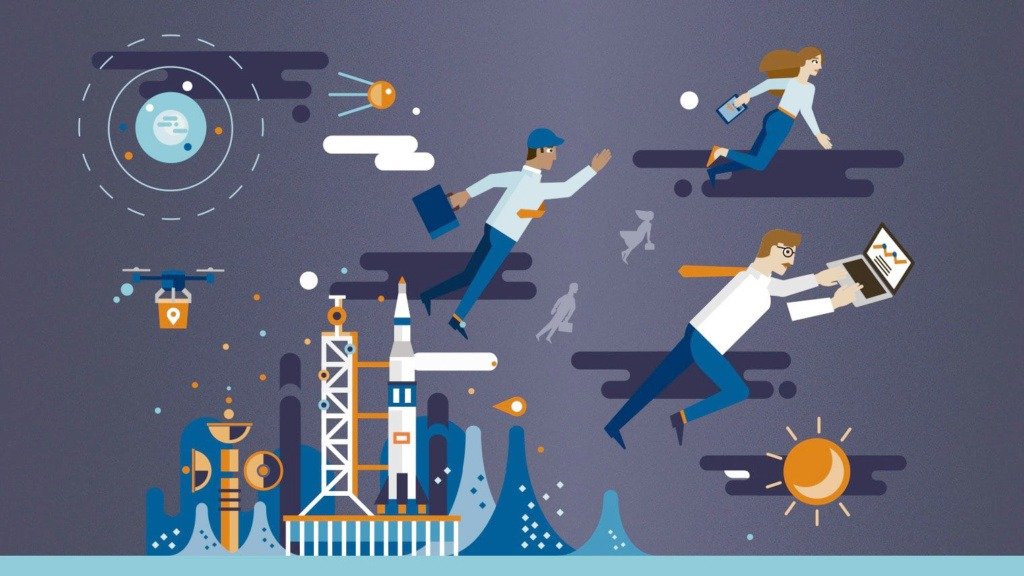
HR must incorporate advances in technology to business processes in order to get better outcomes
What shifts are at the centre of the future of work? How can HR prepare to face these challenges and convert them into opportunities? The days when HR was like a demand and supply business are gone. Now, HR plays a strategically proactive role rather than an operationally reactive one. HR’s ‘business role’ is to facilitate business in an atmosphere of amity and goodwill between all stakeholders. HR has a great role to play to enhance ‘stakeholders value’.
Right from how we organise work to how we execute it, technology is changing the world of work. Companies are innovating new business models in light of the gig economy and the cloud. They are also transforming themselves by investing in emerging technologies like AI, ML, IoT, Blockchain, etc.
From a workforce perspective, employees are more mobile, global, and diverse than ever and, in some cases, robots are working beside humans. Technology adoption and workforce expansion are the key drivers of the future of work.
The key characteristics of the future of work are automation, predictive intelligence, pattern and anomaly detection, work anywhere (mobile), efficient agility, etc. In short, the future of work depends on three broad areas, also called FOW: Flexibility or Freedom to work from anywhere at any time, On the job and War of talent.
HR’s Role
The future of work will create unique challenges for HR professionals as it is going to be the combination of artificial intelligence and augmented reality where humans will work along with technology. This will enable the worker to work from anywhere and at any time.
Organisations need to re-conceptualise work, not as a distinct disconnected task laid in a predefined process, but as a collaborative problem-solving effort where humans and machines work together to achieve results they could not achieve alone.
Continuous learning and development will play a major role in leveraging the human qualities of social and critical skills. Those who actively redefine and re-skill their organisations will capitalise on growth opportunities and thrive.
This would entail adopting a new mindset, driving new methods, and embracing new technologies. Those – individuals and organisations – who master both technical and social skills will lead the way in the future of work.
HR professionals need to proactively devise strategies to deal with this massive change by re-engineering and automating business processes and redesign work for technology and learning.
Technology Solutions
Aligning your strategy with the right technology partner will not only accelerate your business objectives, it will also help you take a fresh look at your strategy.
Leading players are investing in adaptive intelligence. For example, Oracle’s HCM Cloud solutions can recommend certain roles to employees. It can suggest learning that might be a good fit for a person and can predict whether or not a person is a top performer or potential flight risk to your company, saving you millions of dollars, recommending the best candidate for a job or predicting the likelihood that someone will accept an offer saving time, but it can, more importantly, find the right talent to drive the business.
Decision science is used to provide analysis of scenarios and recognise patterns and anomalies that influence process outcomes. Vast amounts of data are incorporated via IoT and other data inputs to improve data domains and produce better benchmarks. Chatbots are embedded in the context of scenarios that users are accustomed to experience, and recommendations or automation of processes (RPA) are generated once the desired outcome is identified.
The Future
Whenever a revolution takes place in the business, there is a worry that jobs will be lost. But it is useful to remember that these revolutions usually lead to job creation. The only difference has always been that it has created more skilled jobs than manual jobs and forced organisations to train employees on upcoming skills for the betterment of both employees and organisations.
This time, too, with the evolvement of artificial intelligence, machine learning, robotics, blockchain, etc, and FOW, efficient technology will be applied to business processes to arrive at better outcomes






